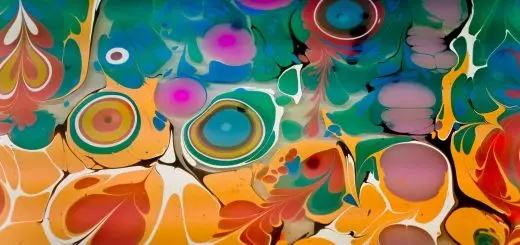Secrets Unveiled: Delving into Occultism

Looking for more amazing products? Check out our online store and explore our collection here! Happy shopping!
Before diving in, please note: This post is for informational purposes only. If you’d like to know more about how we approach topics, feel free to check out our friendly Disclaimer Page.
Hey there, amazing readers! 
We’re committed to delivering quality posts, and your support (even just sticking around despite the ads) means everything to us. So, bear with us, and thanks for helping us keep the good vibes rolling. Now, on to the fun stuff!
TRANSLATE BUTTON AT THE END OF THE ARTICLE
Secrets Unveiled: Delving into Occultism
Overview
Occultism has long been a subject of fascination and intrigue, shrouded in mystery and often misunderstood.
This article aims to shed light on the world of occultism, providing an in-depth exploration of its basics, historical origins, different branches, rituals and symbols, controversial practices, influence on art and literature, debunking common myths, as well as highlighting the potential dangers and warnings associated with it.
Understanding the Basics of Occultism
At its core, occultism refers to the study and practice of hidden or secret knowledge, often involving supernatural or mystical elements.
It delves into the realms beyond what is considered ordinary or known, seeking to understand the hidden forces governing the universe.
Occultists believe that there are unseen energies, spirits, and powers that can be harnessed and utilized for personal growth, spiritual development, and even practical purposes.
The Historical Origins of Occult Practices
The origins of occult practices can be traced back to ancient civilizations, such as the Egyptians, Babylonians, Greeks, and Romans.
These early occultists explored astrology, alchemy, divination, and various forms of magic.
They believed in the interconnectedness of the universe and sought to tap into its hidden wisdom.
Throughout history, occultism has also been influenced by mystical traditions such as Kabbalah, Hermeticism, and Gnosticism.
Unraveling the Mysteries of the Occult World
The occult world is a vast and complex realm that encompasses a wide range of beliefs and practices.
It includes disciplines like astrology, numerology, tarot reading, palmistry, and crystal healing.
Occultists may also engage in astral projection, spirit communication, and spellcasting.
The aim is often self-discovery, spiritual enlightenment, and personal transformation.
However, it is important to note that not all occult practices are universally accepted or supported by scientific evidence.
Exploring the Different Branches of Occultism
Occultism branches out into various sub-disciplines, each with its unique focus and methods.
Some popular branches include ceremonial magic, witchcraft, theosophy, and esoteric traditions like Rosicrucianism and Freemasonry.
Ceremonial magic involves elaborate rituals, invocations, and the use of symbols to harness and manipulate unseen energies.
Witchcraft, on the other hand, emphasizes the connection to nature and the use of spells and potions.
Theosophy explores theosophical systems of thought and spiritual evolution, while esoteric traditions focus on hidden knowledge and mysticism.
The Role of Rituals and Symbols in Occultism
Rituals and symbols play a significant role in occult practices.
Rituals are performed to create a specific atmosphere, invoke spiritual entities, or channel energy.
They often involve reciting incantations, performing gestures, and using various objects like candles, crystals, and herbs.
Symbols, such as pentagrams, sigils, and astrological signs, hold deep meaning and are believed to have power on a subconscious level.
They are used to focus intention, represent concepts, and establish connections with the unseen realms.
The Controversial Practices Surrounding Occultism
Occultism has always been a subject of controversy and skepticism.
Some practices, such as black magic or necromancy, involve manipulating energies or summoning dark entities for selfish purposes.
These practices are often condemned and viewed as dangerous.
Additionally, the lack of scientific evidence supporting occult claims has led to skepticism from the mainstream community.
It is crucial for individuals delving into occultism to approach it with discernment, critical thinking, and respect for ethical boundaries.
The Influence of Occultism on Art and Literature
Throughout history, occultism has had a profound influence on art and literature.
Understand the Powerful Law of Karma and Its Impact – Explore Here!
Artists and writers have drawn inspiration from occult symbols, mythologies, and philosophies, incorporating them into their works.
From the mystical symbolism in the paintings of Salvador Dali to the occult themes in the novels of H.P.
Lovecraft, the occult has served as a rich source of inspiration and a means to explore the depths of human consciousness and the unknown.
Debunking Common Myths about Occultism
Occultism is often surrounded by misconceptions and myths.
One common myth is that all occult practices involve devil worship or malevolent intent.
In reality, occultism encompasses a wide range of beliefs and intentions, including those focused on personal growth, healing, and spiritual exploration.
Another myth is that occultists possess supernatural powers or can control others’ minds.
While occultists may strive to harness unseen energies, it is important to approach any claims of supernatural abilities with skepticism and critical thinking.
The Dark Side of Occultism: Dangers and Warnings
Although occultism can offer personal growth and spiritual insight, there are potential dangers associated with delving into the occult world.
Engaging in unethical practices, such as attempting to harm others through spells or curses, can have negative consequences.
Moreover, some individuals may become too consumed by their exploration of the occult, leading to obsessive or unhealthy behaviors.
It is crucial for practitioners to approach occultism with caution, seeking guidance from experienced mentors, and maintaining a balanced perspective.
Conclusion
Occultism is a vast and intricate realm that has captivated human curiosity for centuries.
By understanding the basics, historical origins, different branches, rituals, and symbols associated with occultism, one can gain insight into this often-misunderstood field.
While debunking common myths, it is important to approach occult practices with discernment and respect for ethical boundaries.
By delving into occultism with an open mind, individuals may find personal growth, spiritual enlightenment, and a deeper understanding of the hidden forces shaping the world around us.

The Enlightenment Journey is a remarkable collection of writings authored by a distinguished group of experts in the fields of spirituality, new age, and esoteric knowledge.
This anthology features a diverse assembly of well-experienced authors who bring their profound insights and credible perspectives to the forefront.
Each contributor possesses a wealth of knowledge and wisdom, making them authorities in their respective domains.
Together, they offer readers a transformative journey into the realms of spiritual growth, self-discovery, and esoteric enlightenment.
The Enlightenment Journey is a testament to the collective expertise of these luminaries, providing readers with a rich tapestry of ideas and information to illuminate their spiritual path.
Our Diverse Expertise
While our primary focus is on spirituality and esotericism, we are equally passionate about exploring a wide range of other topics and niches 

To ensure we provide the most accurate and valuable insights, we collaborate with trusted experts in their respective domains 
Our blog originally focused on spirituality and metaphysics, but we’ve since expanded to cover a wide range of niches. Don’t worry—we continue to publish a lot of articles on spirituality! Frequently visit our blog to explore our diverse content and stay tuned for more insightful reads.
Hey there, amazing reader! 
Check out our store here and take a peek at some of our featured products below! Thanks for being awesome!












